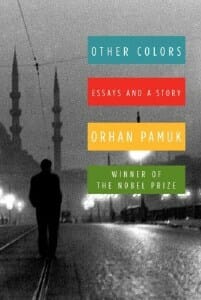Orhan Pamuk

Nobel thoughts
Pamuk’s ?rst publication since his 2006 Nobel Prize endows him with a satisfying sense of humanness. Resisting an opportunity to play the stage of fame as a writerly rock god, the Turkish novelist keeps things surprisingly personal. He even starts his book with a sampling of unapologetically playful prose exercises, some complete with pen-and-ink doodles, a kind of calisthenics that keep his work limber and inventive.
The most compelling essay, “The Anger of the Damned,” is political. In this sobering explication of anti-Americanism, Pamuk contends that this widespread condition rises from the world’s poor and disenfranchised “… of constant humiliation, of a failure to make oneself understood, to have one’s voice heard.”
Pamuk offers songs of praise to writers whose spirits run through his pen: Dostoyevsky, foremost, and a half dozen others. Notable, too, is “My Father’s Suitcase,” a moving tribute to his father’s encouragement, and to the life of the writer. Pamuk gave the essay as his acceptance speech in Stockholm.
GET PASTE RIGHT IN YOUR INBOX
The best music, movies, TV, books, comedy and more.